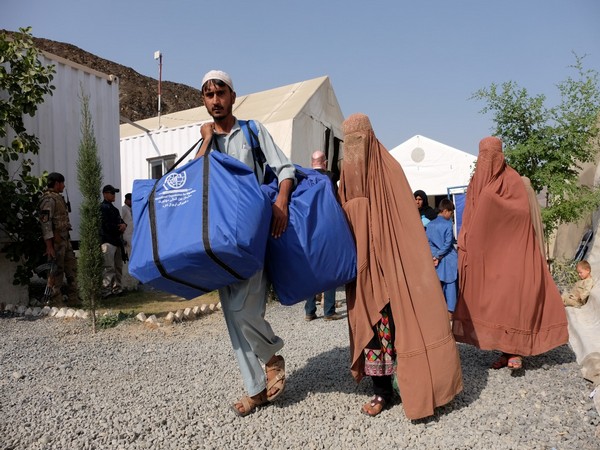
Pakistan to emulate Iran model to contain refugees coming from Afghanistan

Islamabad [Pakistan], July 6 (ANI): Pakistan may emulate the Iran model to contain refugees coming from Afghanistan by closing the border as the US, North Atlantic Treaty Organisation (NATO) troops withdrawal progresses amid the rise in violence by the Taliban.
As the troops withdrawal enters its final phase and the Taliban make more territorial gains, an influx of refugees into Pakistan seems inevitable, reported Dawn.
Islamabad appears not in favour of opening its border and instead is ready to look into the ‘Iranian model’ if the situation demands it.
“We have decided not to open our border for refugees; the aid agencies can help the needy on the other side too,” Interior Minister Sheikh Rashid Ahmed told Dawn.
“The government would even follow the Iranian model to contain refugees in these camps and manage them effectively,” he added.
On the other hand, a senior government official said though Pakistan was worried about the humanitarian issues confronting the region, including Afghanistan, there were several other factors that need to be considered, reported Dawn.
“We have to keep note of our economic and political situation, social aspects and security problems before taking any decision,” the official said, adding that the decision to allow entry of Afghan nationals fleeing the fighting cannot be seen in isolation.
On the other hand, sources in the security establishment said there were other concerns too in the current scenario.
“Opening of the border could facilitate movement of Pakistanis wanting to support the Taliban either as fighters or in logistics, a security official said.
He cited the example of how even women from Pakistan tried to travel to territories controlled by the militant Islamic State group in Syria and Iraq, reported Dawn.
“This leads to the spread of violent religious extremism in the country,” the official said, adding that the security establishment could also not ignore the fact that a large number of Afghans who arrive would be jobless and might get involved in the politics of ultranationalists like the Pashtun Tahaffuz Movement (PTM).
A senior government official, on the other hand, confirmed that Prime Minister Imran Khan had raised the issue during his telephonic conversation with the Iranian President-elect Ebrahim Raisi on Sunday evening, reported Dawn.
PM Khan, while congratulating Raisi on his victory in the recently-held elections, expressed concern over the worsening security situation in Afghanistan, saying its repercussion could be felt both in Pakistan and Iran.
According to a report of the United Nations High Commission for Refugees (UNHCR), there were around 800,000 Afghan refugees in Iran, but they were all living in refugee villages set up by Tehran along with the border areas with Afghanistan in the 1980s and prevented from settling in cities and towns.
At present, there are two key border crossings between Pakistan and Afghanistan — Chaman in Balochistan and Torkham in Khyber Pakhtunkhwa — besides several small trading points. Most of the border with Afghanistan has been fenced, making illegal movement difficult.
There are around three million Afghan nationals living in Pakistan, out of which 1.4 million are holders of the proof of registration card (PR Card), followed by about 850,000 who have Afghan citizen cards while up to half a million were unregistered persons mostly living in remote areas, doing menial jobs or were nomads or herders, reported Dawn. (ANI)

















POST COMMENTS (0)